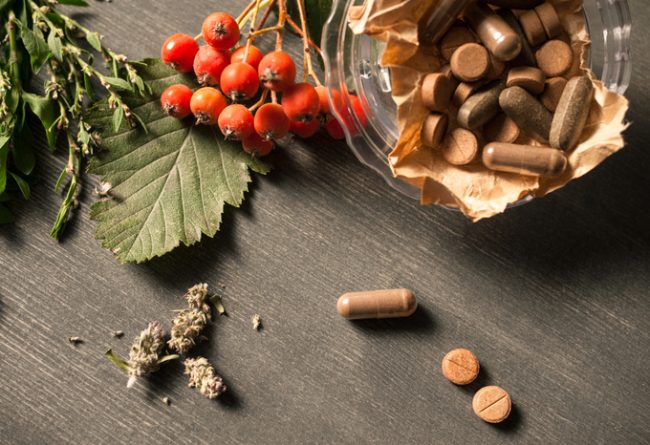Life can be stressful and overwhelming. Many of us find that we’re reacting to stressors over and over without any reprieve in sight. The ability to react quickly to demanding or adverse circumstances clearly has an important purpose. It helps us rise up to the challenges of our lives.
The fact is, we are hardwired to react — this stress adaptation goes far back into our ancestry. It’s meant to protect us when we need it most, and is often referred to as the “fight or flight” response. “Fight or flight” can certainly be a good thing in specific situations.
Think about a time when your ability to react quickly, say to an oncoming car as an example, saved you. It also left you with you with an intense physical aftermath – your heart racing, breathing hard, and maybe even feeling nauseous from the surge of hormones released by your adrenal glands.
The modern conundrum is that most people are responding to stressful situations so often, that we haven’t gotten very good at the other side of the coin — relaxation. In fact, a recent survey found that, “more than four in 10 Americans feel guilty for relaxing on vacation.” [1]
Clearly, seeking serenity, or tranquility, in our modern lives is a challenge. Hopefully we can achieve some measure of peace on a daily basis, not just when we’re away on vacation. Many experts believe that resilience, the capacity to recover quickly from stressful situations to a more balanced state of body and mind, is one of the most important keys to a fulfilling and healthy life.
Fortunately, there are simple lifestyle solutions that you can practice every day to bring you a bit closer to a serene state. One of the most powerful daily practices is meditation. And if you’re able to add in yoga as well, then that’s a bonus! Researchers have found that the combination of yoga and meditation can lead to improved markers of stress resilience as well as improved subjective well-being.[2]
In addition to lifestyle interventions, it can be beneficial to have botanical options that can improve both our resilience and our ability to feel more tranquil.
Here are a few of my favorite plants:
- Ashwagandha — Ashwagandha (Withania somnifera) is an ancient plant that has been utilized in India for thousands of years. The species name somnifera refers to its role in helping promote restful sleep*. In the traditional Indian system of medicine called Ayurveda, it’s considered to be a “rasayana,” a restorative tonic that increases health and longevity.[3] Today, ashwagandha sits at the top of many integrative practitioners’ list of most effective adaptogens. (An adaptogen is a plant that helps the body adapt to stress better). Ashwagandha has broad based characteristics that make it an excellent tonifying herb when taken daily.* Sensoril®, a patented ashwagandha extract has been clinically shown to address the negative effects of anxiety and stress.*
- California poppy — is a bright sunny flower native to the United States and Mexico that has been traditionally used in Native American medicine for its sedating effects.* It can be helpful for restlessness and inability to relax both the mind and the body.*
- Valerian — has been used to support healthy sleep patterns and calm nervousness since ancient Greek and Roman times.* It is considered a classic nervine herb for its ability to soothe anxiety.*
- Lemon balm — is often referred to as the “gladdening herb” because of its uplifting and grounding qualities.* It is a gentle plant that is widely used in Europe.
These botanicals can be taken alone, but are often most effective together where they can work synergistically in a formula. A combination of both lifestyle and herbal solutions can help you get a bit closer to experiencing serenity after stress, and to feeling more resilient in the face of the demands of modern life.
[1] Forbes. Americans Feel Guilty on Vacation – For Relaxing. https://www.forbes.com/sites/kateashford/2015/08/20/relax-on-vacation/#124f179e50c0
[2] Science Daily. Yoga and Meditation Improve Mind Body Health and Stress Resilience. https://www.sciencedaily.com/releases/2017/08/170822104855.htm
[3] Narendra Singh et al. An Overview on Ashwagandha: A Rasayana (Rejuvenator) of Ayurveda. Afr J Tradit Complement Altern Med. 2011; 8(5 Suppl): 208–213.
*These statements have not been evaluated by the Food and Drug Administration. This product is not intended to diagnose, treat, cure or prevent any disease.
 Article contributed by Erin Stokes, N.D., Medical Director at INNATE Response. Dr. Stokes received her naturopathic doctor degree from Bastyr University in 2001. Shortly afterwards she began to pursue her passion for educating others by teaching Western Pathology and Psychology of Healing at Southwest Acupuncture College in Boulder, Colo. She combines her experience as a naturopathic doctor with an extensive background in the natural retail industry, most recently providing naturopathic consultations at an integrative pharmacy for over six years. Her personal mission is to empower people with the inspiration and tools to change their lives, and she is a frequent radio show and podcast guest. Dr. Stokes is a registered Naturopathic Doctor in Colorado, and lives with her family in Boulder, Colo.
Article contributed by Erin Stokes, N.D., Medical Director at INNATE Response. Dr. Stokes received her naturopathic doctor degree from Bastyr University in 2001. Shortly afterwards she began to pursue her passion for educating others by teaching Western Pathology and Psychology of Healing at Southwest Acupuncture College in Boulder, Colo. She combines her experience as a naturopathic doctor with an extensive background in the natural retail industry, most recently providing naturopathic consultations at an integrative pharmacy for over six years. Her personal mission is to empower people with the inspiration and tools to change their lives, and she is a frequent radio show and podcast guest. Dr. Stokes is a registered Naturopathic Doctor in Colorado, and lives with her family in Boulder, Colo.

